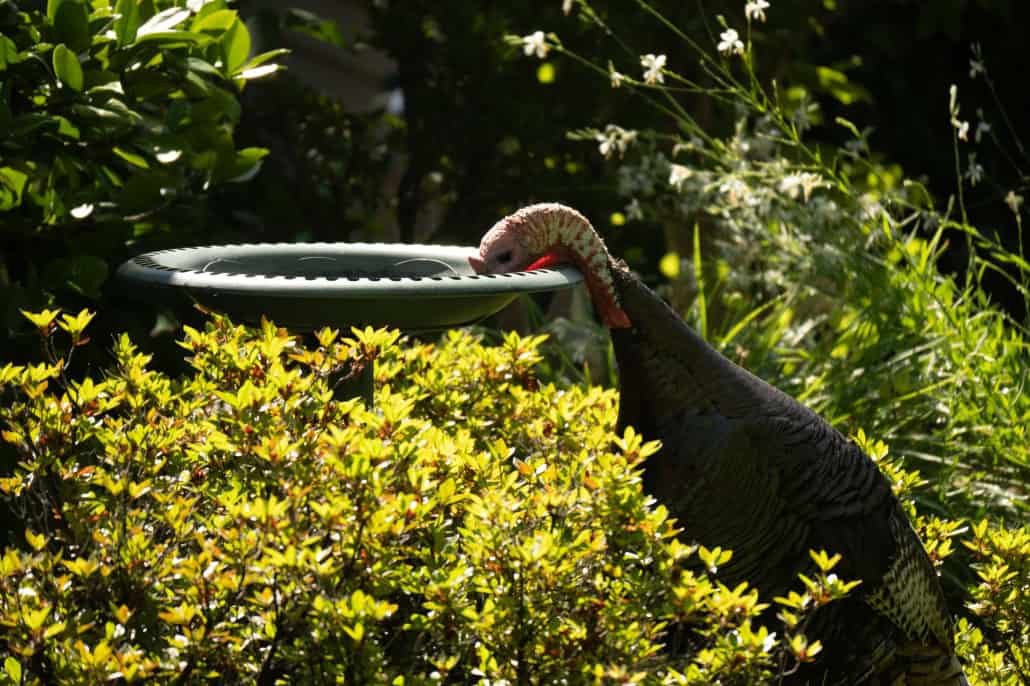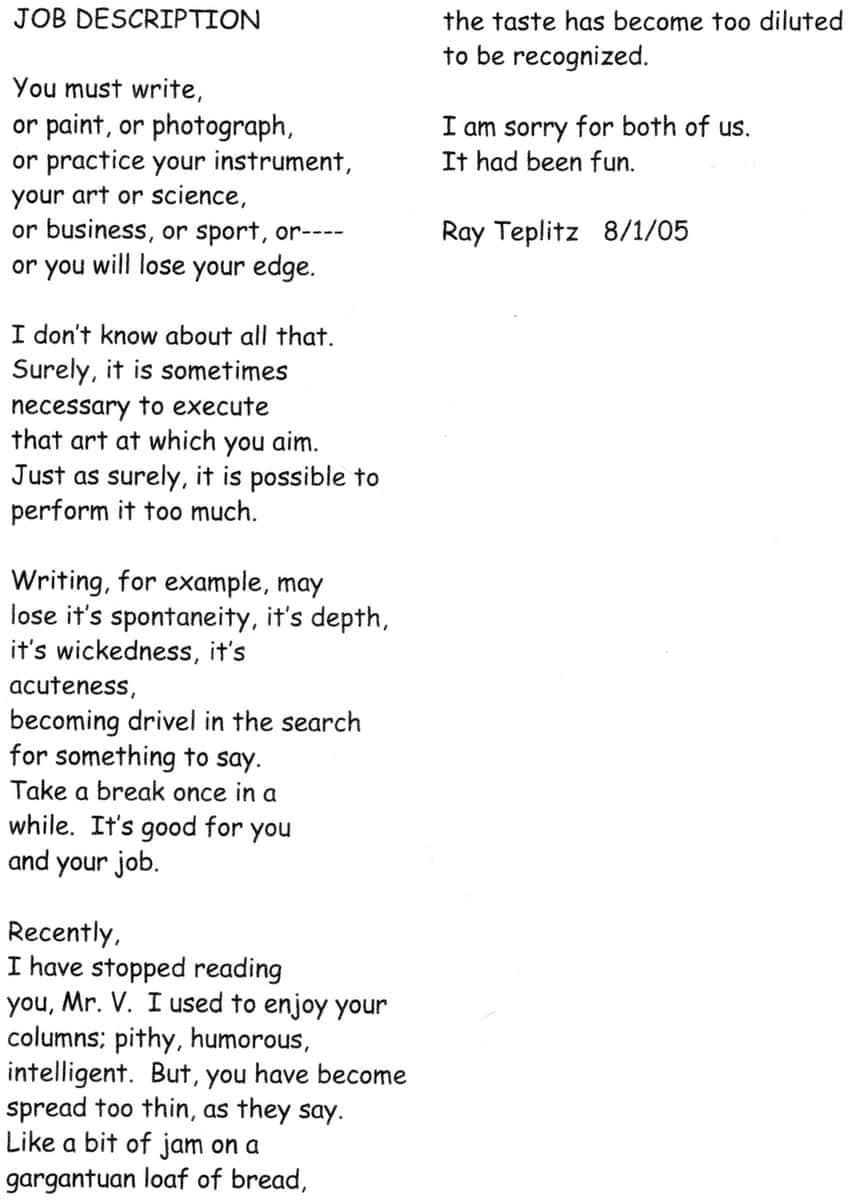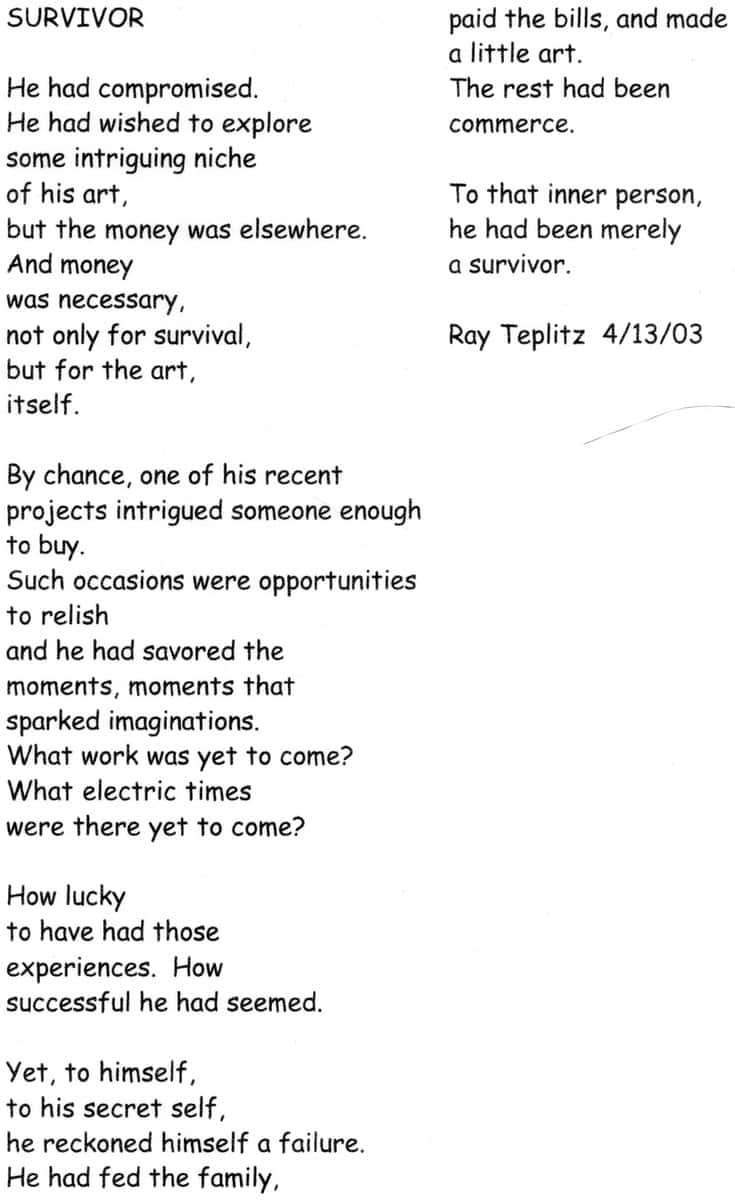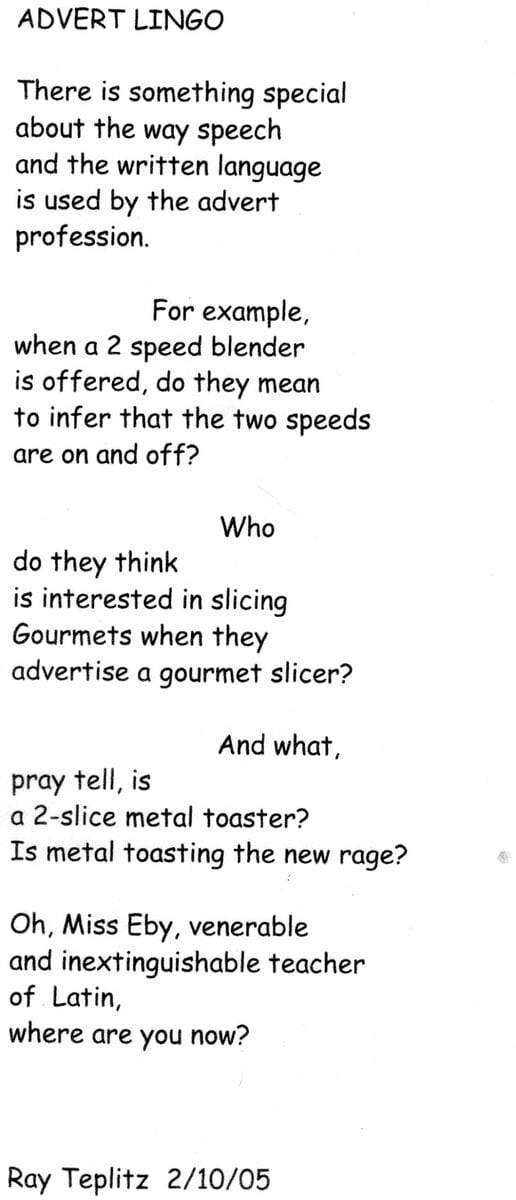battered into submission by Tom Conger
The Roman emperor’s wife hates playing hide and seek because wherever she goes, Julius Caesar.
I like what mechanics wear, overall.
If you are being chased by a pack of taxidermists, do not play dead.
I tried to steal spaghetti from the shop, but the female guard saw me and I couldn’t get pasta.
My friend told me he was going to a fancy dress party as an Italian island. I said to him, “Don’t be Sicily.”
I don’t know what you call a small spillage from a pen but I have an inkling.
My grandfather invented the cold air balloon but it never really took off.
I hate funerals, I’m not a mourning person.
I used to work in a shoe-recycling shop. It was sole-destroying.
When she saw her first strands of gray hair, she thought she’d dye.
A boiled egg is hard to beat.
Once you’ve seen one shopping center, you’ve seen a mall.
It’s hard to explain puns to kleptomaniacs because they always take things literally.
I’m a big fan of whiteboards. I find them quite remarkable.
Yesterday, a clown held the door open for me. It was such a nice jester.
Becoming a vegetarian is a huge missed steak.
The other day she tried to make a chemistry joke, but got no reaction.
It’s funny England doesn’t have a kidney bank, but has a Liverpool.
Acupuncture is a jab well done.
When a clock is hungry, it goes back four seconds.












